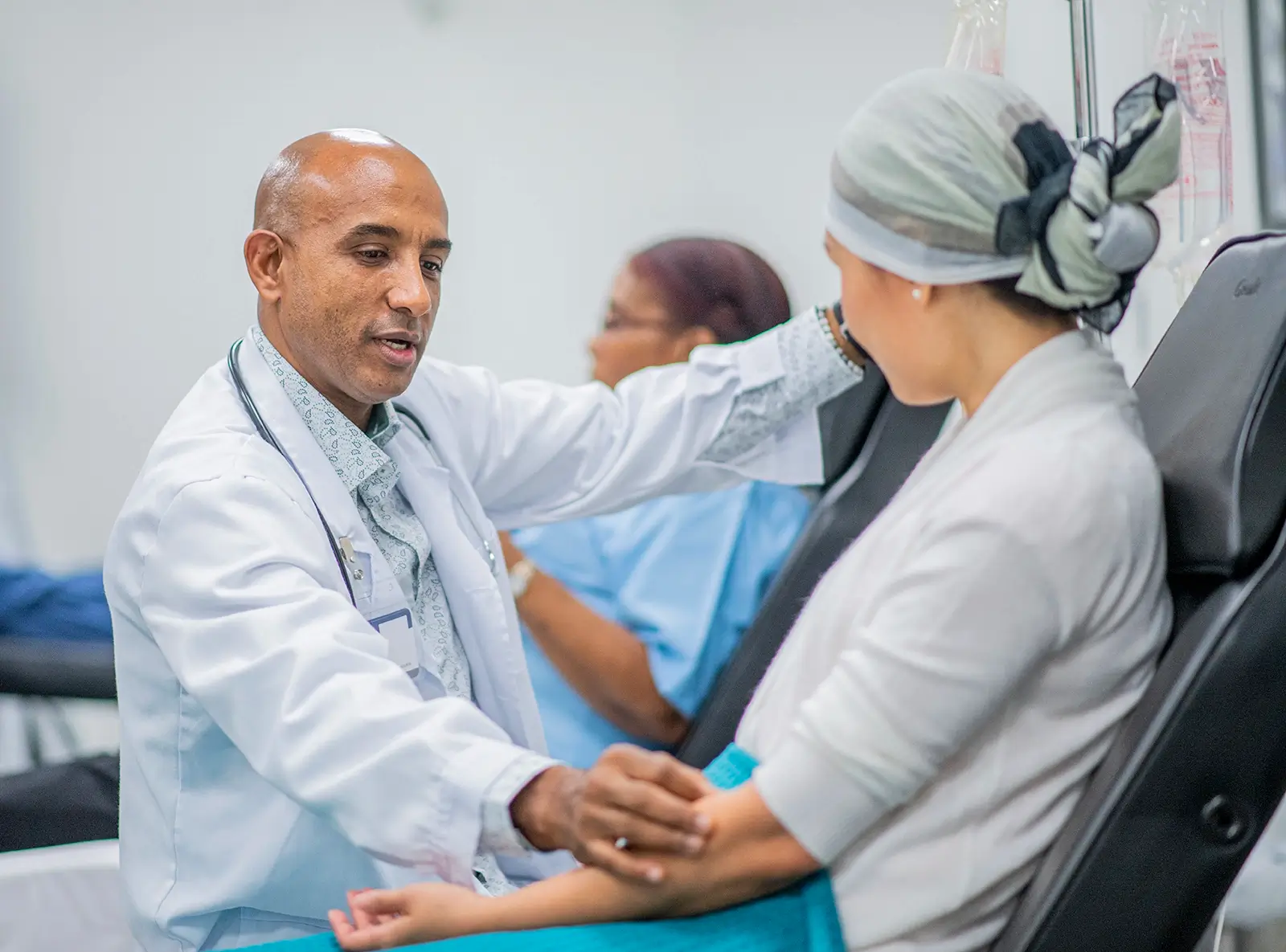It is never too early to start a strategic plan for oncology product development in the APAC region
It is never too early for a thorough oncology product development strategy
By Fortrea
In oncology, a goal-oriented, holistic strategic plan is crucial, even in the earliest phases of product development. From the onset, leveraging an integrated strategy that encompasses operational planning and rigorous oversight across the entire development program is pivotal, especially for global studies. This approach not only ensures the successful progression of the product through all development phases, but also enhances its value.
Considerations for study planning
The planning of oncology studies requires numerous considerations, each vital to consider from the start of your product development timeline. While it is impractical to address every detail here, we will focus on a few key nuances.
Clinical trial feasibility
Some rare disease trials linger in the pending stage due to recruitment hurdles. On the other hand, trials for high-profile diseases can face similar issues with enrollment rates due to severe competition. In still other cases, the goal is to enroll early-stage patients, who might have lower rates of diagnosis because the condition is asymptomatic at this point. These are just a few of the difficulties that can arise when planning and completing a clinical trial, and all should be considered in the earliest phases of product development.
Meeting clinical needs
Deep assessment and evaluation of potential indications based on mechanisms of action (MOA) and preclinical data is mandatory at the start of your oncology product development timeline. The whole picture should be analyzed, including availability of competitor therapies (with the same or different MOA), efficacy, toxicity or side effects, and overall pros and cons. All of these factors must be weighed when making the decision to initiate the clinical stage.
Overall, it's imperative that the product meets clinical needs. For example, even if the product shows promising performance, it might not appeal to regulatory agencies or the market if the clinical need it addresses has already been fulfilled.
Dosing in early phase planning
Early phase oncology compound development usually starts from straightforward dose escalation design. Multiple elements should be taken into consideration from the beginning, including, but not limited to:
- Starting dose and optimized dose schedule based on preclinical data
- Potential targeted tumor types based on compound mechanism
- Available standard of care (SOC)
- Wettbewerb
- Unmet medical needs
- Potential combination to maximize future development and clinical benefit
All these require collaboration across functional expertise, including clinical pharmacology, medical and science, biomarker solutions, regulatory consultant and project delivery, among others. Fortrea accomplishes this through a Product Development Team (PDT) consisting of SMEs who are specialized in these functions.
Leveraging real world data
When planning for pivotal registrational trials, using Real World Data (RWD) and Precision Medicine Data in addition to traditional historical performance data unlocks a greater level of precision. RWD can guide country and clinical trial site selection for an enriched target patient population, especially for studies with specific biomarker or gene mutation/alteration requirements. In addition, these study designs require a more intensive understanding of factors like the regulatory environment and requirements in the target market and country, disease prevalence, medical care practices at the country level, global drug supply chain management as well as market access and commercialization considerations.
Fortrea has established a data economy system, fully leveraging an internal clinical trial database and external data from partners and vendors to provide data-driven strategy and solutions. This allows us to fully support sponsors in optimizing study planning.
Evolving your strategy
Dynamic evaluation and adaptation of strategy are even more critical than its initial formation. Over the past 5-10 years, the landscapes of disease, competition and regulation have dramatically evolved and will continue to do so. It is increasingly common to see significant shifts in medical practice and available treatment options between the initiation of Phase I studies and the launch of later-stage Phase IIb or III trials. Even within the same indication or target population, countries that previously showed strong enrollment performance in similar clinical trials may no longer be as effective due to new treatment options or therapies that are covered by insurance locally. Therefore, it is essential to continuously monitor and adjust your study strategy based on these potential changes.
To address this consideration, Fortrea's dedicated Development Strategy and Growth business unit collaborates with study teams to provide timely support in strategy and planning, feasibility, site partnerships, patient recruitment and engagement. This includes offering digital solutions to alleviate burdens on sites and patients. Through dynamic evaluation and adaptation, changes often occur in protocol design and the selection or expansion of country/site mixes. In a rapidly changing world, successful study execution increasingly depends on proactive regulatory interactions, flexible resource allocation and an experienced local delivery and operations team that can respond with agility and proficiency.
Choosing the right global partner
Maintaining the balance between speed and high-quality execution is essential for biotech companies in China or other Asia Pacific (APAC) countries that are conducting global studies. The key to successful project delivery lies in assembling the right team—one that regards your asset as its own.
There are two critical considerations for this process. The first is choosing the appropriate Global Project Leader who understands the unique needs of China/APAC biotech and who can lead the team to proactively address challenges, adapt strategies swiftly and provide comprehensive solutions. The second is on-the-ground expertise and timely resource allocation. An experienced local team is vital to ensure that the project is delivered according to plan.
Immediate response to emergencies, identification and preemptive warning of potential risks, and efficient execution are crucial for swiftly advancing studies, applicable to both early-phase oncology trials and late-phase expansions. Strong project oversight by a senior individual is therefore indispensable.
Fortrea uniquely offers a Delivery Director for each study, whether sponsored by biotech or global pharma. The Delivery Director is a deeply experienced senior leader within our organization, equipped with the skills necessary to guide trial implementation, the insight to proactively identify risks and challenges and the authority to take corrective actions when needed. Our dedicated team of Delivery Directors in the APAC region expertly utilizes Fortrea's global cross-functional expertise, from regulatory affairs to therapeutic areas and strategy and growth, to provide the project team with the support needed to effectively manage global study expansion.
Fortrea has developed a customized resource model tailored to meet the specific needs of APAC biotech. This includes investing in Global Project Leaders within the region who possess extensive experience in global studies, expanding resources in the U.S. and EU dedicated to APAC biotech and establishing a resource committee. With robust global coverage and a solid resource assignment process, evolved from Covance and Lapcorp Drug Development, Fortrea is committed to providing experienced local CRO resources for biotech studies in the APAC region.
Contact us to explore our solutions to advance your oncology product development strategy.










